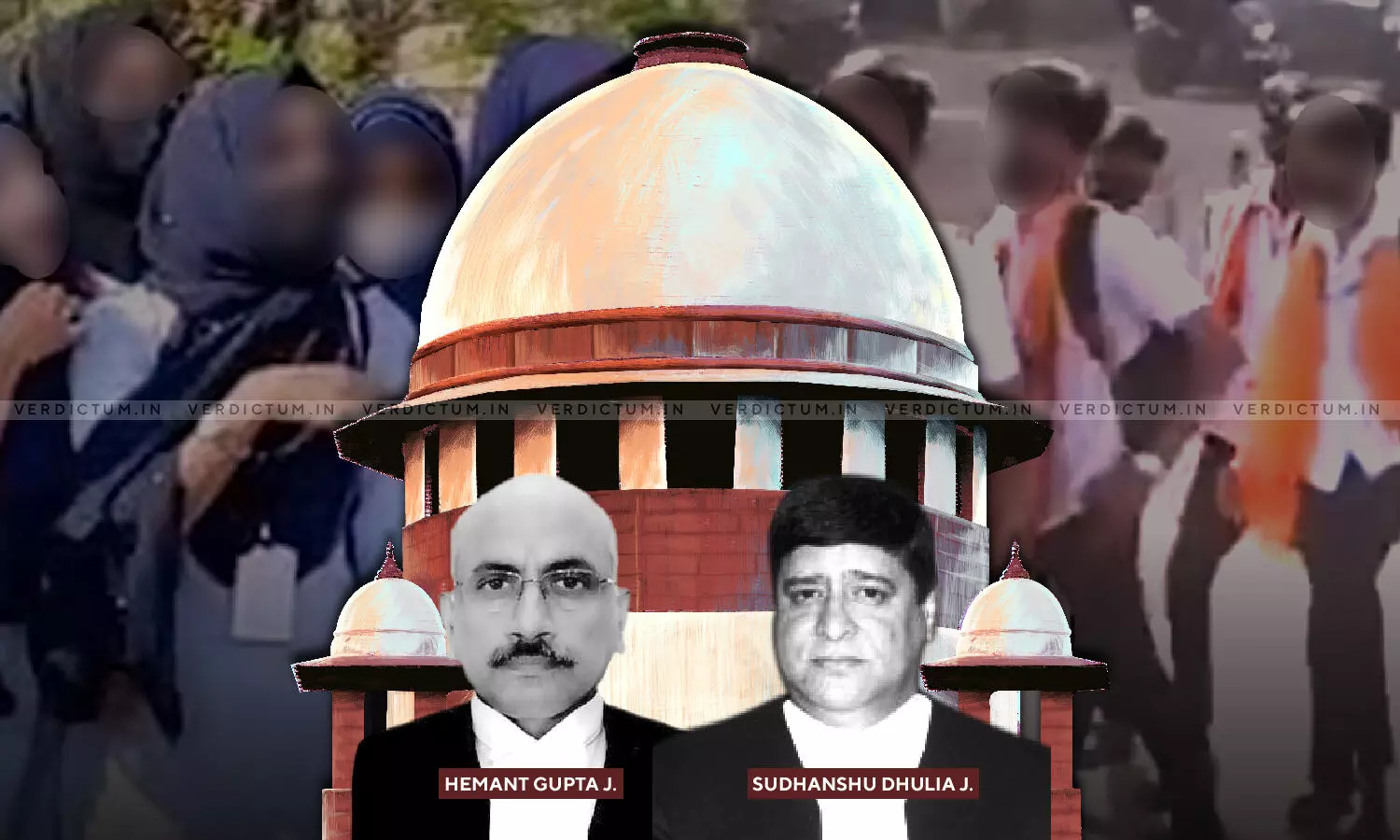
Breaking: Supreme Court Delivers Split Verdict On Hijab Appeals
 |
|The two-judge Bench of the Supreme Court had delivered a split verdict on the hijab row. The Bench of Justice Hemant Gupta and Justice Sudhanshu Dhulia has delivered the split verdict.
Justice Hemant Gupta has answered 11 questions against the appellants and dismissed the appeals. The Judge read out the questions and said that all the questions are answered against the appellants. The judge thanked the lawyers for the assistance on a subject that was not known to him.
Justice Sudhanshu Dhulia then read out his opinion stating that all the appeals have been allowed and the Government Order has been quashed. "The main thrust of my judgment is that the entire concept of Essential Religious Practice was not essential for deciding the dispute. The High Court took the wrong path there. It was a question of Article 19(1)(a). It is a matter of choice, nothing more, nothing less. The ratio in Bijo Emmanuel's case squarely covers this issue", he said.
Justice Dhulia said that girl children face many difficulties in rural areas, "are we making her life any better", that is also a question I have considered, the judge added.
In view of the divergent opinions, the Bench had directed that the matters be placed before the Bench of CJI.
The Bench had on September 22 concluded its 10-day long hearing in the batch of appeals against the Judgment of the Karnataka High Court upholding the state's decision to impose restriction on the wearing of Hijab inside classrooms in government schools in the state.
In its written submissions filed before the Court, the State of Karnataka had submitted that the State has the power to reform religious practices.
A full bench of the Karnataka High Court comprising of the then Chief Justice Ritu Raj Awasthi, Justice Krishna S. Dixit and Justice J. M. Khazi had held that hijab is not an essential religious practice in the Islamic faith. The Court had also held that the prescription of school uniform is a reasonable restriction that is constitutionally permissible.